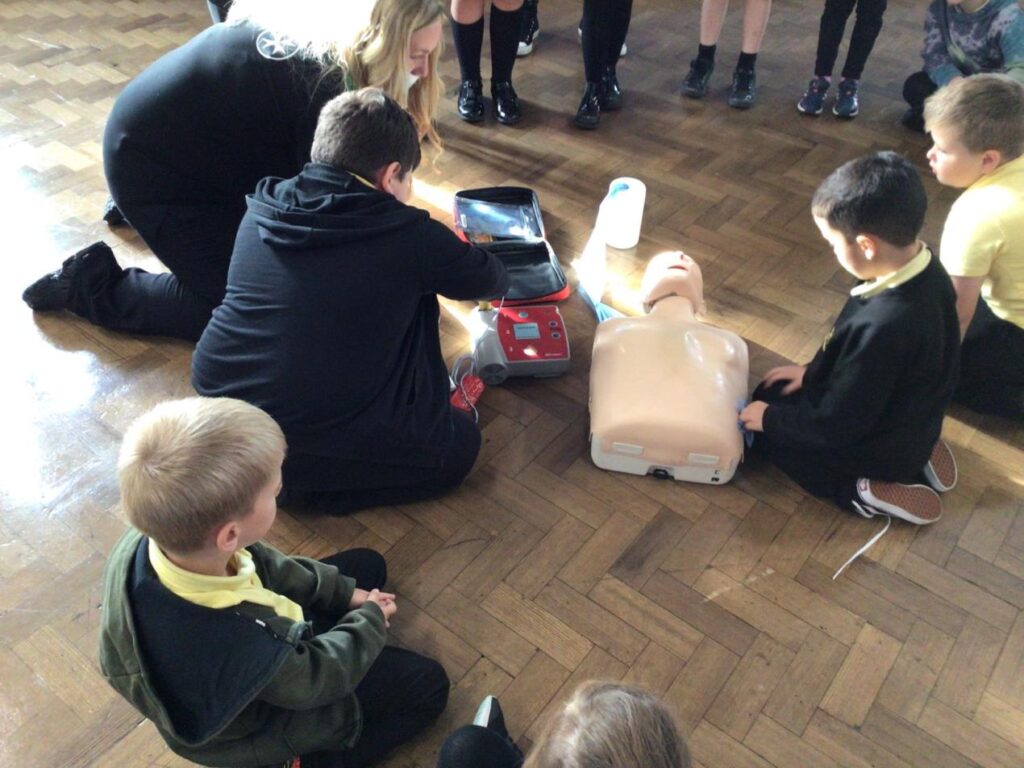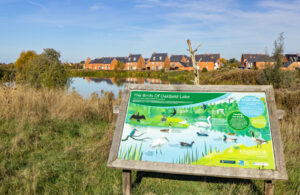St John Ambulance Cymru offers advice for Parents and Carers this Child Safety Week

This year 5th-11th June is Child Safety Week, and St John Ambulance Cymru has put together some top tips to help keep children and young people across Wales safe.
Child Safety Week is an annual community education campaign run by the Child Accident Prevention Trust. This year’s theme is ‘safety made simple’. According to the Royal Society for the Prevention of Accidents (ROSPA) very year in the UK year an average of 370,000 children need treatment in the Emergency Department due to an accident at home, and an average of 55 children under the age of five die every year due to an unintentional injury.
When a baby starts to crawl, they can bump their head on furniture or other objects and when starting to walk they may be unsteady and fall. Most of the time the injury will be minor and they might not even cry, but sometimes a bump on the head can be more serious. If you think your baby has a minor head injury sit them on your lap and hold something cold against the injury to help reduce the swelling, like an ice pack or a frozen bag of vegetables wrapped in a tea towel.
While you do this try to assess the baby’s level of response using the AVPU scale:
Alert – Are they alert? Are their eyes open?
Voice – Can they respond to you if you talk to them?
Pain – Does the baby respond to pain? If you flick the bottom of their foot, or pinch their ear lobe, do they respond to you by moving or opening their eyes?
Unresponsive – Are they unresponsive to all of the above? If they are unresponsive or you are worried, call 999 or 112 for emergency help.
If they have any wounds, treat them by applying direct pressure to the wound. Keep checking the baby’s level of response until they’ve recovered or medical help arrives.
If your baby (a child under one year old) is choking, their airway is partly or completely blocked, meaning that they may be unable to breathe properly. As you start weaning your baby and they begin eating solid foods or playing with small objects, they may be at risk of choking.
If you think the baby is choking then they need your help straight away. If they can breathe, are making noises, or coughing, then they may be able to clear their own throat.
If the baby cannot breathe, cry, or cough, they may be choking and you will need to give five back blows.
Lay the baby face down along your forearm and thigh, making sure you support their head and neck. Give five sharp back blows between the shoulder blades with the heel of your hand.
Turn them over on your thigh and check their mouth. Pick out any obvious obstructions you can see with your fingertips.
Do not sweep the mouth as this could push the object further down the throat.
If back blows fail to clear obstruction, give five chest thrusts with your baby facing upwards, making sure you’re supporting their head and neck. Put two fingers in the centre of their chest just below the nipple line and give five sharp chest thrusts.
Check their mouth again, each time you deliver a chest thrust.
Call 999 or 112 for emergency help if the obstruction hasn’t cleared. Take the baby with you to make the call.
Keep repeating five back blows and five chest thrusts until help arrives, checking their mouth each time.
If the baby becomes unresponsive at any point, prepare to start CPR.
For more first aid advice please visit our website.




